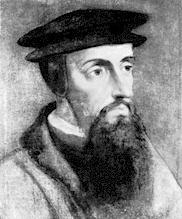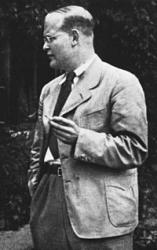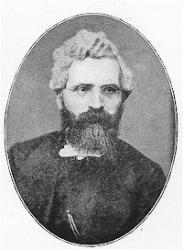Planning worship?
Check out our sister site, ZeteoSearch.org,
for 20+ additional resources related to your search.
- |
User Links
Person Results
Thomas T. Lynch

1818 - 1871 Author of "Together For Our Country Now We Pray" in The Cyber Hymnal Lynch, Thomas Toke, was born at Dunmow, Essex, July 5, 1818, and educated at a school at Islington, in which he was afterwards an usher. For a few months he was a student at the Highbury Independent College; but withdrew, partly on account of failing health, and partly because his spirit was too free to submit to the routine of College life. From 1847 to 1849 he was Minister of a small charge at Highgate, and from 1849 to 1852 of a congregation in Mortimer Street, which subsequently migrated to Grafton Street, Fitzroy Square. From 1856 to 1859 he was laid aside by illness. In 1860 he resumed his ministry with his old congregation, in a room in Gower Street, where he remained until the opening of his new place of worship, in 1862, (Mornington Church), in Hampstead Road, London. He ministered there till his death, on the 9th of May, 1871.
The influence of Lynch's ministry was great, and reached far beyond his own congregation (which was never large), since it included many students from the Theological Colleges of London, and thoughtful men from other churches, who were attracted to him by the freshness and spirituality of his preaching. His prose works were numerous, beginning with Thoughts on a Day, 1844, and concluding with The Mornington Lecture, 1870. Several of his works were published after his death. His Memoir, by W. White, was published in 1874.
Lynch's hymns were published in:—
The Rivulet: a Contribution to Sacred Song, London., Longman, 1855, 2nd ed., 1856. This was enlarged by an addition of 67 hymns in 1868.
From the first edition of The Rivulet, 1855, the following hymns have come into common use:—
1. All faded is the glowing light. Second Advent.
2. Be Thy word with power fraught. Before Sermon.
3. Christ in His word draws near. Holy Scripture.
4. Dismiss me not Thy service, Lord. Work for Christ.
5. Gracious Spirit, dwell with me. Holy Spirit's presence desired.
6. How calmly the evening once more is descending. Evening. Sometimes "How calmly once more the night is descending."
7. I give myself to prayer. Prayer in Trouble.
8. Lord, on Thy returning day. Public Worship.
9. Lord, when in silent hours I muse. Resignation.
10. Love me, O Lord, forgivingly. Resignation.
11. Mountains by the darkness hidden. Resignation.
12. Now have we met that we may ask. Public Worship.
13. O, break my heart; but break it as a field. Penitence desired.
14. O Lord, Thou art not fickle. Sympathy.
15. O where is He that trod the sea. Christ Walking on the Sea.
16. Oft when of God we ask. Trust in Trial.
17. Rise, He calleth thee, arise. Blind Bartimaeus.
18. Say not, my soul, from whence. Resignation.
19. Where is thy God, my soul? Resignation and Hope.
There are also from the 1856 and 1868 eds. the following:—
20. A thousand years have come and gone. Christmas.
21. Lift up your heads, rejoice; (1856.) Advent.
22. Praying by the river side. Holy Baptism.
23. The Lord is rich and merciful. Have Faith in God.
24. There is purpose in this waste. Easter.
Lynch's hymns are marked by intense individuality, gracefulness and felicity of diction, picturesqueness, spiritual freshness, and the sadness of a powerful soul struggling with a weak and emaciated body. Although The Rivulet was published for use by his own congregation as a supplement to Watts, more than one half of the hymns were designed for private use only, but were not so distinguished in the work. Its publication caused one of the most bitter hymnological controversies known in the annals of modern Congregationalism. Time, however, and a criticism, broader and more just, have declared emphatically in favour of his hymns as valuable contributions to cultured sacred song. [Rev. W. Garrett Horder]
--John Julian, Dictionary of Hymnology (1907)
==================
Lynch, T. T., p. 705, ii. Other hymns by him in recent books are:—
1. My faith it is an oaken staff. Faith in Christ. In the Rivulet, 1855, p. 78.
2. Together for our country now we pray. National, In the Rivulet, 1868, p. 170. [Rev. James Mearns, M.A.]
--John Julian, Dictionary of Hymnology, New Supplement (1907)
Thomas T. Lynch
Richard Massie
1800 - 1887 Translator of ""A word of Blessing"" in Laudes Domini Massie, Richard, eldest son of the Rev. R. Massie, of Goddington, Cheshire, and Rector of Eccleston, was born at Chester, June 18, 1800, and resides at Pulford Hall, Coddington. Mr. Massie published a translation of Martin Luther’s Spiritual Songs, London, 1854. His Lyra Domestica, 1st series, London, 1860, contains translations of the 1st Series of Spitta's Psalter und Harfe. In 1864 he published vol. ii., containing translations of Spitta's 2nd Series, together with an Appendix of translations of German hymns by various authors. He also contributed many translations of German hymns to Mercer's Church Psalter & Hymn Book; to Reid's British Herald; to the Day of Rest, &c. He died Mar. 11,1887.
-- John Julian, Dictionary of Hymnology (1907)
Richard Massie
W. P. Mackay
1839 - 1885 Person Name: William P. Mackay Author of "The Lord is ris'n; and death's dark judgment flood" in Hymns of Worship and Remembrance Mackay, William Paton, M.D., was born at Montrose, May 13, 1839, and educated at the University of Edinburgh. After following his medical profession for a time, he became minister of Prospect Street Presbyterian Church, Hull, in 1868, and died from an accident, at Portree, Aug. 22, 1885. Seventeen of his hymns are in W. Reid's Praise Book, 1872. Of these the best known is "We praise Thee, O God, for the Son of Thy love" (Praise to God), written 1863, recast 1867. [Rev. James Mearns, M.A.]
--John Julian, Dictionary of Hymnology, Appendix II (1907)
======================
Born: May 13, 1839, Montrose, Scotland.
Died: August 22, 1885, Portree, Scotland, of an accident.
Mackay graduated from the University of Edinburgh and initially worked as a doctor. However, he was ordained, and in 1868 became pastor of the Prospect Street Presbyterian Church in Hull. He married Mary Loughton Livingstone 1868 in Kingston Upon Hull, Yorkshire; they were living in Sculcoates, Yorkshire, as of 1881. Seventeen of his hymns appeared in W. Reid’s Praise Book in 1872.
Sources:
Hustad, p. 278
Julian, p. 1667
Reynolds, p. 365
http://www.hymntime.com/tch/bio/m/a/c/mackay_wp.htm
W. P. Mackay
Jean Calvin

1509 - 1564 Person Name: Juan Calvino Author of "Yo te bendigo" in Celebremos Su Gloria
Jean Calvin
Henry Maxwell Wright

1849 - 1931 Author of "A ti, ó Deus, fiel e bom Senhor" in Hinário para o Culto Cristão (2nd ed.) Born in Lisbon, 7 December 1849 to English parents who were Christians. He returned to England and worked in business. After helping Dwight Moody in evangelism campaigns in England in 1874 and 1875 he abandoned his business career and became an evangelist in England and Scotland. He returned to Portugal on several occasions for evangelism meetings and wrote many hymns in Portuguese.
Henry Maxwell Wright
Dietrich Bonhoeffer

1906 - 1945 Person Name: Dietrich Bonhoeffer (1906-1945) Author of "We turn to God when, we are sorely pressed" in Church Hymnary (4th ed.)
Dietrich Bonhoeffer
Eric H. Thiman
1900 - 1975 Harmonizer of "EVENTIDE" in The United Methodist Hymnal Music Supplement II b. 9-12-1900, Ashford, Kent, d. 2-13-75, London; music educator, organist, and composer
Eric H. Thiman
Ieuan Gwyllt

1822 - 1877 (Cyf.) of "Abide with me! fast falls the eventide (Trig gyda my, ny Nuw, mae'r dydd yn ffoi)" in Old and New Welsh and English Hymns Bardic name (pseudonym) of John Roberts. See also Roberts, John. He published a book of his tunes, Llyfr Tonau Cynulleidfaol, in London, England, in 1859.
Ieuan Gwyllt
James Russell Woodford

1820 - 1885 Person Name: James R. Woodford Author of "Thee we adore, O unseen Saviour!" in Songs of the Christian Life Woodford, James Russell, D.D., was born April 30, 1820, and educated at Merchant Taylors School, and Pembroke College, Cambridge, of which he was a scholar; B.A. Senior Optime, and 2nd class in the Classical Tripos. He was ordained in 1843, and became second Master in Bishop's College, Bristol; and Curate of St. John the Baptist, Broad Street, in that city. He became Incumbent of St. Saviour's, Coalpit Heath, 1845; of St. Mark's, Easton, Bristol, 1848; and Vicar of Kempsford, Gloucestershire, 1855. In 1868 he was preferred by the Crown to the important vicarage of Leeds on Dr. Atlay's appointment as Bishop of Hereford. He was several times Select Preacher at Cambridge. He was also Hon. Chaplain to the Queen (1867). In 1873 he was consecrated, in Westminster Abbey, Bishop of Ely. He died at Ely on Oct. 24, 1885.
Bishop Woodford published Sermons, 1853; Lectures for Holy Week, 1853; Lectures on the Creed, 1853; Sermons, 1864; and Sermons, Charges, &c, at later dates. His Hymns arranged for the Sundays and Holy Days of the Church of England appeared in 1852 and 1855. He also joined H. W. Beadon, and Greville Phillimore in editing The Parish Hymn Book, 1863, and (enlarged) 1875. To these collections his original hymns, and his translations from the Latin, were contributed. The originals include:—
1. Lamb of God, for sinners slain. Passiontide. 1852.
2. Not by Thy mighty hand. Epiphany. 1863.
3. O come, and with the early morn. Easter. 1852.
4. Within the Father's house. Epiphany. 1863.
Bishop Woodford's translations are annotated under their respective Latin first lines. They are good and popular, the best known being "Thee we adore, O hidden Saviour, Thee."
-- John Julian, Dictionary of Hymnology (1907)
James Russell Woodford
John Roberts
1822 - 1877 Person Name: J. R. Translator of "Trig gyda mi, fy Nuw, mae'r dydd yn ffoi (Abide with me; fast falls the eventide)" in Mawl a chân = praise and song Used Ieuan Gwyllt as his bardic name. See also Ieuan Gwyllt, 1822-1877.
John Roberts


 My Starred Hymns
My Starred Hymns

